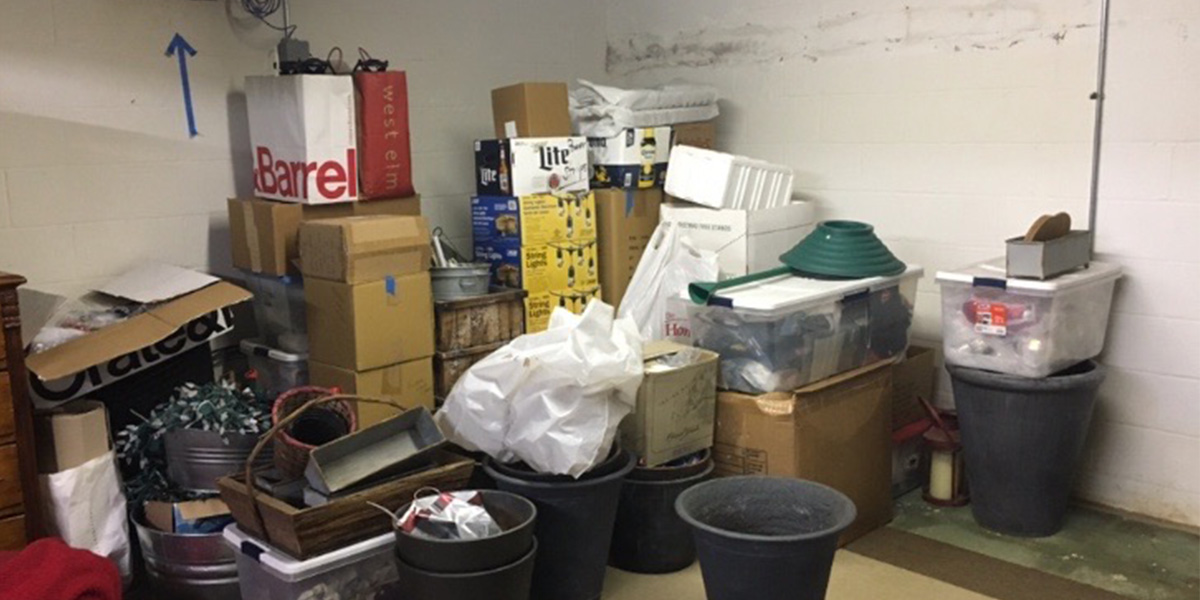
An Organizer’s Love Hate Relationship with Storage Units
I love the idea that someone can use a storage unit as a business location, a man cave, a wine cellar, or as a place to store their cool sports car.
I love that a college student can use a storage unit to store their dorm rooms over the summer and that someone can store excess furniture, while their house is in being marketed for sale.
I love that a builder can use a storage unit to store supplies while they are doing a renovation.
I hate the idea that people are using storage units to store old, dirty appliances, inexpensive furniture, and things that are eventually going to go in the trash, get donated, or get sold.
I hate that people abandon their units with valuable items in storage units and that there are reality TV shows based on this.
The past couple of weeks we have worked in storage units and I am so glad we could help clients get out from under the stuff that was being stored, which had less monetary value than the month’s rent of the unit.
Understandably, people go into storage units for a valid reason initially, in the words of my eloquent husband “storage units can take on a life of their own”. The items being stored take root in the unit and the bill is on autopay. This makes it easy to forget or avoid the whole thing.
Many times people no longer know what is in their unit. A hint to me that there is minimal value: emotionally and financially.
Before you make the decision to take on a storage unit think of the following:
- What is the end game or time frame? Have a clear date and plan as to how long this will take.
- How much is it going to cost in time, rent, insurance, trash hauling, and moving in and out of the unit?
- Do you need what you are storing?
- If you got rid of it would you miss it?
If you answer these questions and can develop a plan, rent the unit.
- Make sure there is a dumpster where you decide to store your things.
- Make sure you do not store things on the ground level, use pallets (in case of a flood).
- Make sure that everything is wrapped in plastic (there may be bugs, including bed bugs).
- Make sure your items are labeled so that it is easy to retrieve them.
- Keep a basic inventory for yourself so that you can more easily retrieve items.
- Use a lock that a bolt cutter can’t get into.
- Do not leave valuable items in the front of your unit. While the door is open you don’t want people to see what you are storing.
- Remember that you are paying for space, fill it carefully using uniform sized boxes that are sturdy.
- Most units don’t have power so you may want to make sure that you have extension cords, work lamps, and flash lights.
I hope this helps you make a good decision and prevents you from being burdened by a storage unit that takes on a life of it’s own and that if renting a storage unit is the right thing for you that you have picked up a hint or two to make the process simpler for you.
